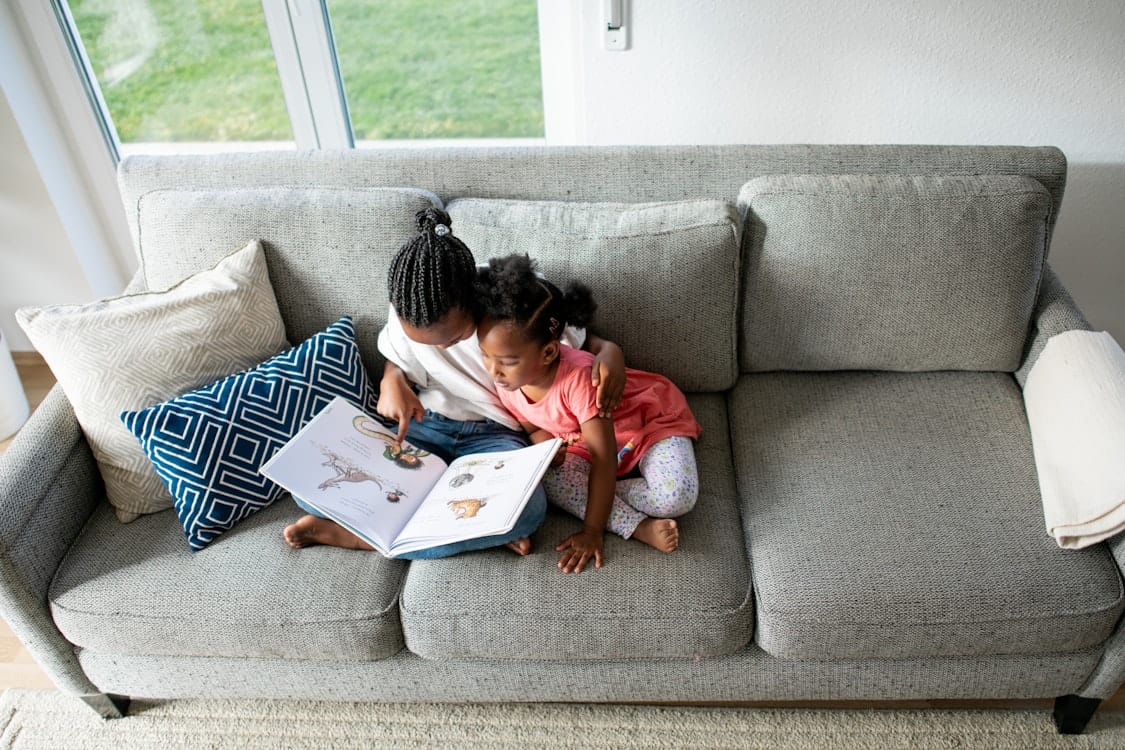Young Children's Meaningful Emotional Growth through Empathy and Social Awareness

From ‘Sorry’ to Sincere: Helping Young Children Build Real Empathy
Do you recall being instructed in your early years to: “Have manners”, “Say thank you,” “Use your kind words,” and of course, “Say sorry.” The assumption was that if children followed these rules, they would grow into kind, emotionally aware adolescents and adults.
But something was missing: understanding.
True empathy is not about saying sorry because you are told to. It’s about feeling sad, or at least understanding that someone else is hurting. And this ability, along with reading social cues like tone of voice or facial expressions, is not something children are born with. It’s something they learn slowly with lots of guidance.
Let’s explore how empathy develops in early childhood, what social cues are, and how you can nurture these skills at home from the toddler years onward.
What Is Empathy?
Empathy is the ability to understand and feel what someone else is experiencing — to “step into their shoes,” emotionally. It involves two core skills:
- Emotional awareness (recognizing others’ feelings),
- Perspective-taking (imagining how someone else feels, even if you’re not feeling it yourself).
Babies are born with a primitive form of empathy. A newborn might instinctively cry when another baby cries. Sometimes this is why you might hear a ‘symphony’ of crying in a hospital nursery, newborns are tuned into others’ distress. However true, intentional empathy, like comforting a sad friend or recognizing when someone’s feelings are hurt, begins to emerge around age 2 and deepens over time.
What Are Social Cues?
Social cues are the subtle signals people send out through facial expressions, tone of voice, posture, and actions. They help us understand how someone is feeling or what they might need.
Imagine this scenario:
Your child grabs a toy from another child. The second child frowns and folds their arms.
If your child notices the face, the crossed arms, and the upset posture, that’s social awareness. If they return the toy and say “I’m sorry” because they realize they have caused sadness, that’s empathy in action.
But children do not pick up these cues instantly. They need repeated experiences and help from you to develop these skills.
Why These Skills Matter
Empathy and social cue recognition are at the heart of all healthy relationships. Children with these skills are more likely to:
- Form close friendships
- Cooperate and resolve conflicts
- Prepare children for success in school or group settings
- Develop a strong moral compass
- Become emotionally intelligent adults
They are also less likely to bully; or be bullied.
How Parents Can Support Empathy & Social Awareness
1. Label Emotions in Others
“Look at her face — she looks sad. I wonder what happened.”
Helping children identify what others are feeling by developing emotional vocabulary and awareness.
2. Use Books and Stories
Picture books are empathy goldmines. Ask questions like:
- “How do you think he felt when that happened?”
- “What would you do if you were her friend?”
This encourages perspective-taking, even in preschoolers.
3. Name and Praise Kind Acts
“You brought your brother a blanket, that was so thoughtful.”
Calling out moments of empathy reinforces the behavior and shows that you value it.
4. Play Pretend
Role-playing with dolls, animals, or action figures lets children safely explore emotional scenarios:
“Oh no, the teddy got left out — how can we help him feel better?”
5. Model Empathy Yourself
Children learn more from what you do than what you say. When you respond to others kindly, notice people’s feelings, or express your own emotions clearly, you teach by example.
What to Avoid
- Don’t force apologies before your child is emotionally ready. A child who blurts out “sorry” without understanding why is not learning empathy, but they are learning performance.
- Don’t dismiss feelings. Saying “He’s fine” or “She’s not hurt, she is only faking” teaches children to ignore emotional signals.
Instead, guide them through the moment: “She’s crying because she does not want to leave the party yet. Let’s give her a minute, hold her hand, and let's walk her to her mommy’s car..
Empathy Is Grown, Not Given
Empathy is not a checklist skill — it’s an emotional capacity that expands with time, modeling, and support. Some children may seem naturally more attuned to others' emotions, while others need more guidance. That is okay. Just be patient with them, they need you to notice, name, and nurture what’s already growing inside.
Your child’s empathy muscles grow every time you notice emotions, model kindness, and invite them to understand others’ perspectives. Keep at it, you're doing important work laying the brick for your child’s emotional foundation.
Footnotes:
- Decety, J., & Cowell, J. M. (2014). “The complex relation between morality and empathy.” Trends in Cognitive Sciences.
- Hoffman, M. L. (2000). Empathy and Moral Development: Implications for Caring and Justice. Cambridge University Press.
- Eisenberg, N. (2006). “Prosocial development in early childhood.” Handbook of Child Psychology.